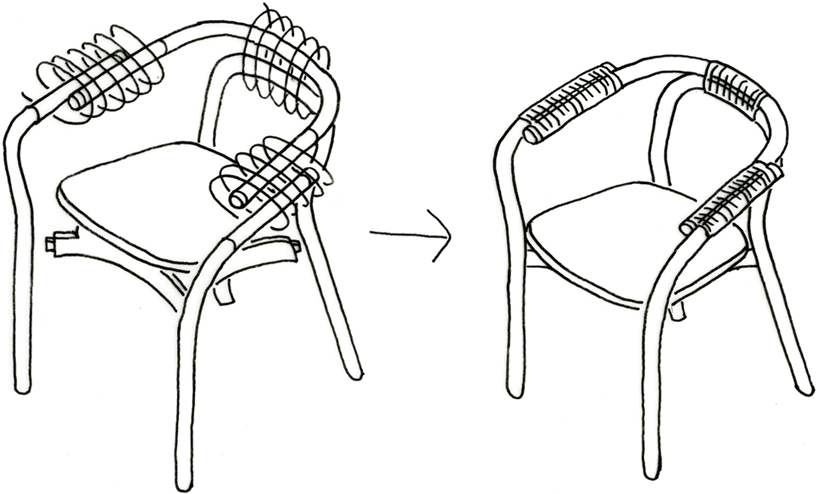
detail of the woven paper-code
this simple armchair is composed of solid beech wood, plywood and paper-code.
entitled 'knot-chair', this prototype is designed by tokyo-based tatsuo kuroda.
the extensions of the chair's front and back legs are joined to form its armrest and backrest.
the structural components are connected by paper-code that has been knitted around the wooden parts,
providing both support and additional visual interest to the chair.
its overall dimensions measure 590 x 730 x 540 mm.

full view

3/4 back view

back view

front view

detail

concept sketch
Comments